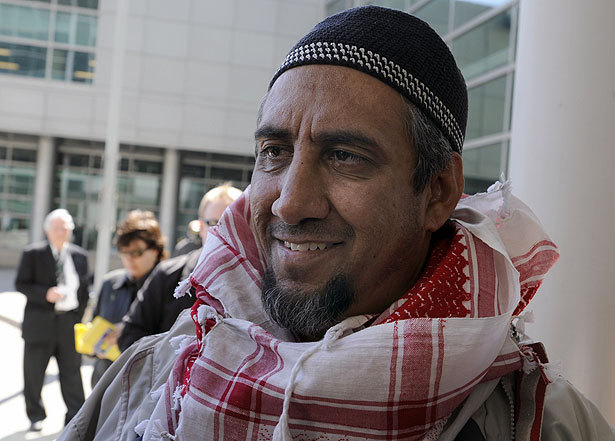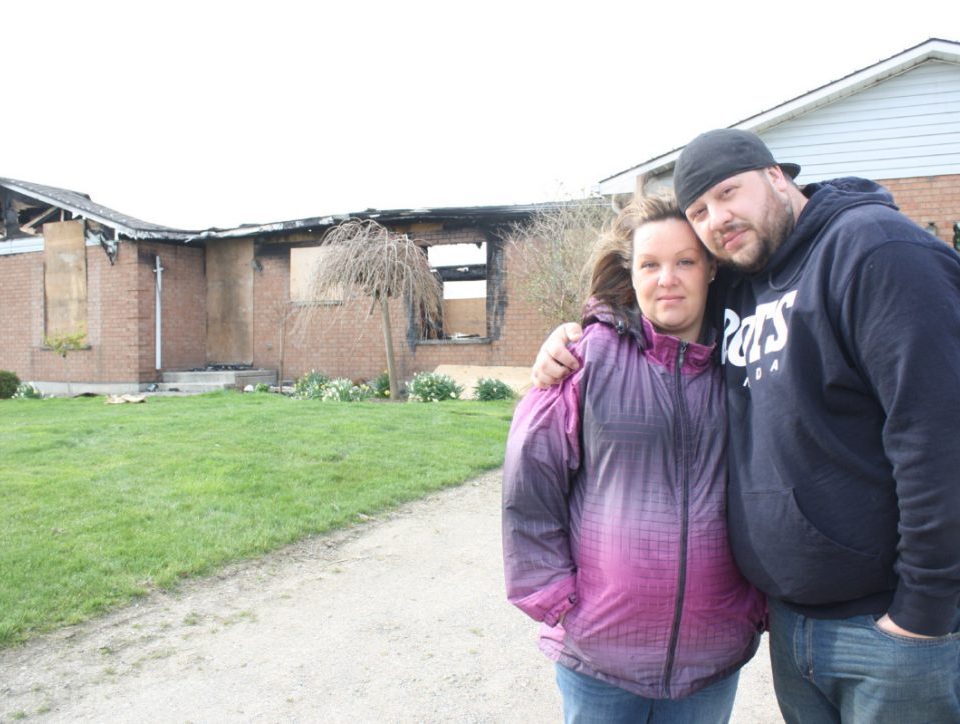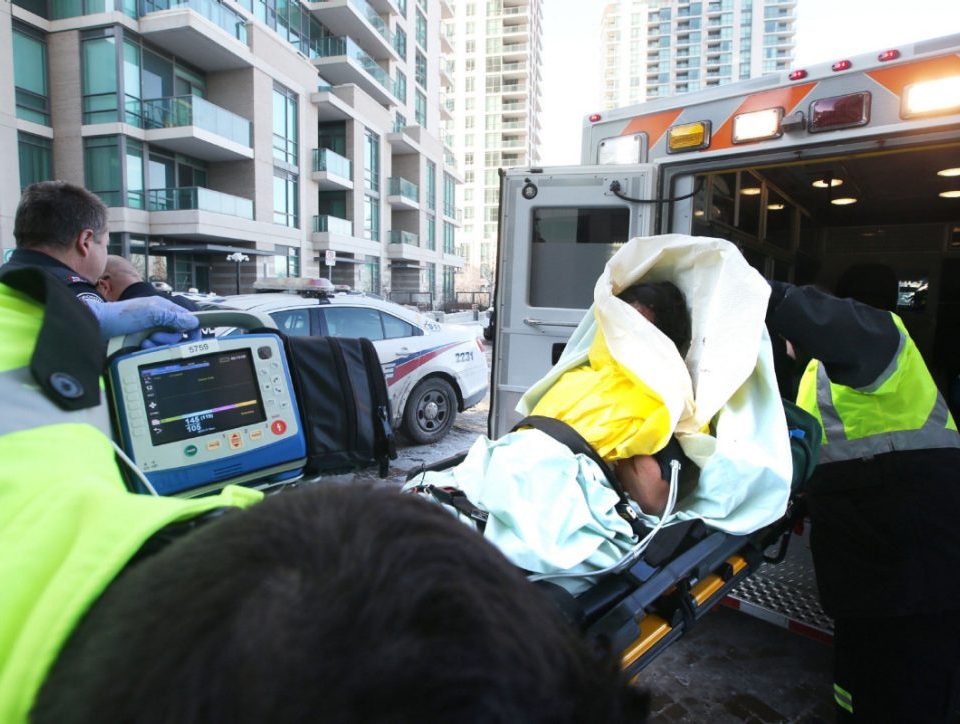So-called terror zealot vindicated
Charges stayed against four in T.O. terror case
April 15, 2008
Murder suspect was witness in another slaying
August 19, 2008Nearly two years ago, when police busted an alleged homegrown terror cell, Qayyum Abdul Jamal was portrayed as the firebrand ringleader seeking recruits for jihad.
Today, he says, he hopes to piece together a reputation left in tatters after being accused of belonging to the so-called Toronto 18, a group of men and teens who allegedly plotted to bomb sites around Toronto.
And he hopes to repair a life changed forever when he spent 17 months in jail, 13 of them in solitary confinement.
That’s why the Crown’s surprise move yesterday to stay terrorism-related charges against Jamal and three of his co-accused is somewhat bittersweet for the 45-year-old.
“If I didn’t have my faith while I was in jail, I would’ve been suicidal,” said Jamal, who says he was beaten, pushed and kicked by jail guards.
“I am innocent,” he told reporters yesterday outside a Brampton courthouse as his wife and sons looked on. “I have nothing to do with this terrorism thing.”
His comments came after the Crown effectively dropped charges against four of the 14 adult suspects netted during a massive police sweep in the summer of 2006.
The stay in proceedings marks another setback in the government’s landmark case against the group. Now, there are 11 accused of belonging to what was originally called an Al Qaeda-inspired cell.
At stake is the reputation of Canada’s spy service and the federal police force, particularly since news of the alleged cell captured worldwide attention. Their arrest marked the first time an alleged terrorist organization was charged in Canada using criminal laws implemented after the 9/11 attacks.
“It’s too soon to say that the whole case has fallen apart but some of it has and that has to be worrying to the government,” said professor Wesley Wark, who studies security and intelligence at the University of Toronto’s Munk Centre for International Studies. “It’s as if they’re casting out the outer rings of what they think is a terror plot and focusing on the core people they believe were serious members.”
Dan Brien of the Public Prosecution Service of Canada refused to comment on the strength of the case. However, he said the department “believes that the public interest is best served by proceeding in this manner.”
In addition to Jamal, charges were stayed for Ahmad Mustafa Ghany, 23, and Ibrahim Aboud, 21. The trio, who signed peace bonds, were charged with participating in a terrorist group as well as training for terrorist purposes.
Yasin Abdi Mohamed, 26, was charged with participating in the group and importing firearms for the benefit of a terrorist group. He did not sign the peace bond, but had his charges stayed as well.
The three men who signed the peace bond, all of whom are from Mississauga, now face various conditions, including not associating with co-accused, surrendering their passports, abiding by a curfew and not possessing any firearm or explosive substance.
The accused were among 14 men and four youths suspected of planning to storm Parliament Hill, take politicians hostage and behead the Prime Minister.
They are also alleged to have attended a so-called terrorist 12-day training camp in December 2005 and are accused of plotting to bomb sites such as the Toronto Stock Exchange and offices of the Canadian Security Intelligence Service. Police allegedly intercepted an order for three tonnes of ammonium nitrate destined for truck bombs.
Yesterday, court heard that some of the camp’s participants attended firearms training, played paintball games and listened to speeches encouraging battles against the West.
Court heard Jamal was present for five days and played paintball games, participated in marches, wore camouflage; Aboud attended for five days and played paintball and shot a pellet gun; Ghany was there for three days and helped set up the camp and played paintball.
Yesterday, all of the men appeared relieved as they left the courthouse.
Lawyer Raymond Motee, who represents Aboud, said because his client attended a winter camp, he has been labelled a terrorist and his life has been “irrevocably changed into a Kafkaesque nightmare.”
“There has been a stigma attached to his name from the day that he was arrested, and that stigma will continue to follow him around like a perpetual shadow,” said Motee. “Big Brother will be watching.”
Defence lawyer Rocco Galati said his client, Ghany, also will be stigmatized for the rest of his life.
“I think a lot of Western prosecutions on alleged terrorism charges are simply horse and pony shows in furtherance of George Bush’s oil war and to sustain Canada’s commitment in Afghanistan,” he said.
While the stay in proceedings marks a final chapter in what has been a lengthy ordeal for the four, the events were particularly significant for Jamal, who spent the longest time in pre-trial custody.
His work as a caretaker at the Al-Rahman Islamic Centre in Mississauga, where he reportedly made no secret of his anti-Western views, raised suspicions that he was recruiting teens and young men for jihad. Because he originally faced an explosives charge, he appeared to be instrumental in the group’s alleged ambitions. But doubts about his alleged involvement surfaced when the bomb charge was dropped in September 2007, helping to pave the way for his eventual release on bail in November 2007.
“There should be apologies extended from parties who were more than prepared to come forward and make accusations against Mr. Jamal,” said his lawyer, Anser Farooq, adding a public inquiry should be held into the government’s handling of the case.




